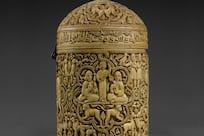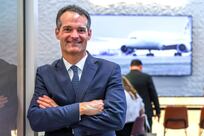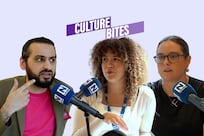Schools teach children how to become employees, says Rich Dad Poor Dad author Robert Kiyosaki – and if they want to turn children into entrepreneurs instead, they need to give lessons in money, investing and debt.
The 69-year-old American, from Hawaii, published Rich Dad Poor Dad in 1997, about lessons he learnt from his "rich dad" mentor (his childhood friend's father) as opposed to his own "poor dad", although it has never been proven "rich dad" exists and the author will not name him.
Those lessons were mostly about how to generate passive income through sage investments – in his case, real estate. He divides people into employees and the self-employed, who make active income, and business owners and investors, who make passive income.
Kiyosaki has written 25 other books (including two co-authored with Donald Trump), selling 27 million copies; his wife Kim has also written Rich Woman. Today he is worth US$80 million, according to Celebrity Net Worth.
In November he will be a keynote speaker at the National Achievers Congress in Dubai, along with Ultimo lingerie founder Baroness Michelle Mone. Previous speakers have included Bill Clinton, Tony Blair and Sir Richard Branson.
Although he has a college degree, he dropped out of an MBA after taking a three-day real estate course – partly because he feels students can learn more outside a traditional classroom.
“The school system and what it teaches supports graduates moving into jobs versus life as an entrepreneur,” he says. “It trains them for specific roles as specialists versus generalist, who will work for someone else’s business.
“If a school’s goal is to ‘graduate’ entrepreneurs, the school will teach the students about money and investing, global markets, debt and building a team.”
He adds that financial education is how we prepare for whatever the future holds. “Most crucial is an understanding of how money works and the vocabulary – the language – of money. You can hire an accountant, but an entrepreneur must know the basics of accounting and understand cash flow.”
Indeed, Kiyosaki goes further in advising that would-be entrepreneurs are “often better served” by an apprenticeship with, or being mentored by, a successful entrepreneur (“someone who has actually done what they want to do”) than by getting a college degree.
“This experiential education often outpaces the more formal, structured university education,” he says.
A helicopter gunship pilot in the Vietnam war and one-time Xerox salesman, Kiyosaki’s first business created the first Velcro and nylon surfer wallet, his second licensed T-shirts, hats and the like for heavy metal bands including Judas Priest and Motley Crue. Both businesses went bankrupt, leaving him owing $850,000 to the banks.
But he bounced back and, after taking that three-day real estate course and ditching his MBA, he dipped his toe in the property waters, buying his first investment property in 1973 – an $18,000, one-bedroom apartment in Hawaii, for which he put the $2,000 deposit on his credit card.
He says he has bought about 40 per cent of his total property portfolio since the latest real estate downturn; his most recent purchase was a 1,600-unit complex for $80 million. He never puts his own money into buying property, always financing them like a “rich dad”.
“Great investors will craft an investment that will deliver both cash flow – that’s king – and capital gains,” he says. “I invest for cash flow – but well-managed and well-maintained properties that were ‘bought right’, financed creatively, in growth areas often delivering a capital gain.”
Since the recession, the rich are growing richer and the poor poorer, Kiyosaki counsels and, as far back as 2002, he has been predicting the worst market collapse in history coming this year. He recently wrote that Brexit was “proof of this coming flood”.
This collapse, he believes, will be triggered by tens of millions of baby boomers retiring this year and beginning to withdraw their pensions, rocking the stock markets. He also foretells that the bubble will burst this year in China; when the country stops foreign imports, he warns, a world crash will follow.
For individuals, he says the best preparation against losing their money in another recession is “financial education” and “understanding the language of money, how global markets can impact you and diversification across multiple asset classes”.
So if the markets are crashing, should people look to the traditional alternative, gold? Kiyosaki, who has invested in several precious metal mines, from silver in Argentina to copper in Canada, says he uses gold and silver “more as a hedge than an investment”. But he refuses to be drawn as to whether now is the time to buy gold. “I don’t make recommendations: I simply share what I do and why,” he says.
“There are several investment plays that a person can take advantage of when interest rates are low – and I expect that the markets will become more, not less, volatile in the months ahead,” he cautions.
Running internationally since 1992, the National Achievers Congress Festival will take place at Arena Al Badia in Dubai on November 18 and 19. Tickets cost from US$395.
business@thenational.ae
Follow The National's Business section on Twitter





